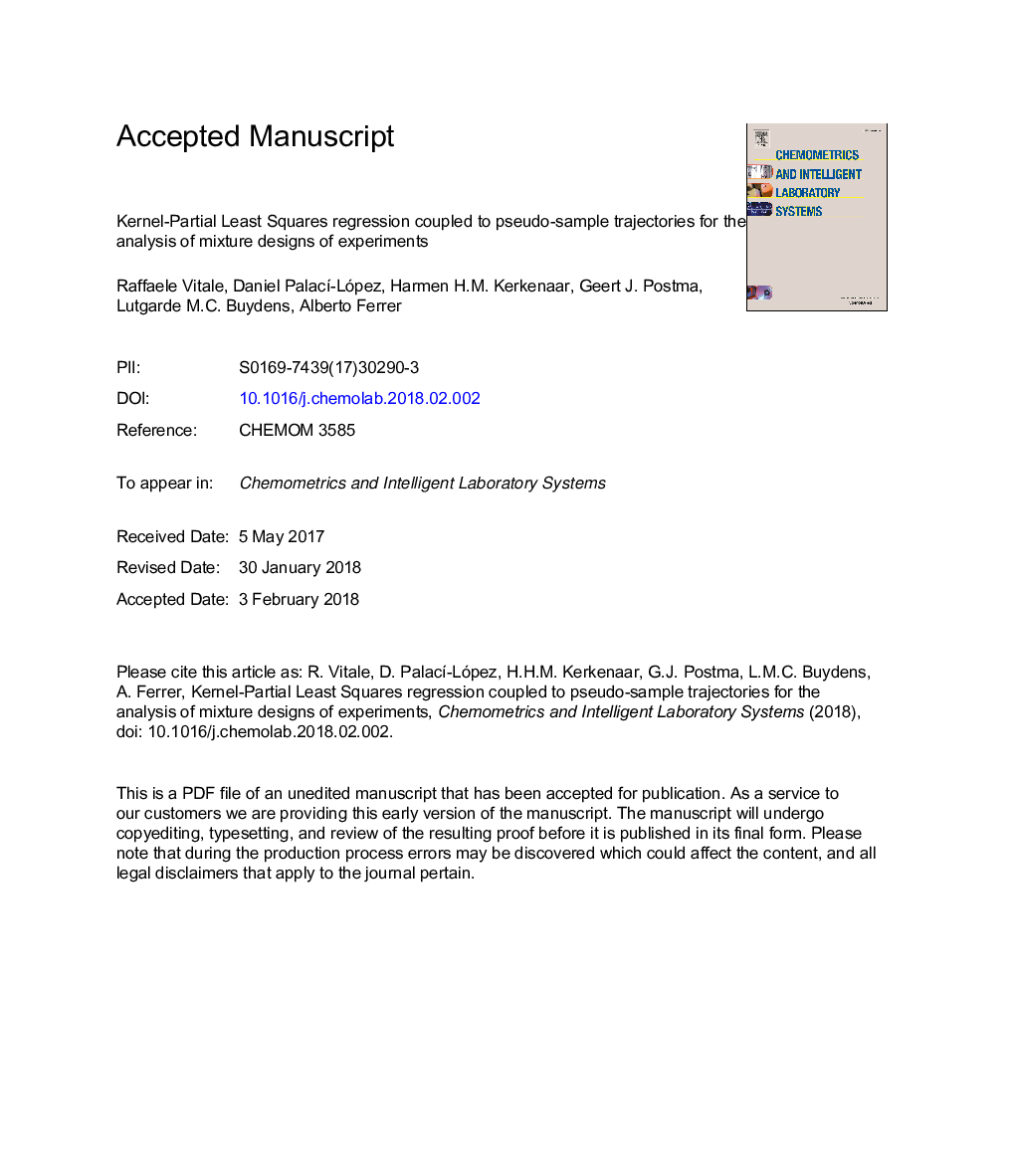| Article ID | Journal | Published Year | Pages | File Type |
|---|---|---|---|---|
| 7562103 | Chemometrics and Intelligent Laboratory Systems | 2018 | 27 Pages |
Abstract
This article explores the potential of Kernel-Partial Least Squares (K-PLS) regression for the analysis of data proceeding from mixture designs of experiments. Gower's idea of pseudo-sample trajectories is exploited for interpretation purposes. The results show that, when the datasets under study are affected by severe non-linearities and comprise few observations, the proposed approach can represent a feasible alternative to classical methodologies (i.e. Scheffé polynomial fitting by means of Ordinary Least Squares - OLS - and Cox polynomial fitting by means of Partial Least Squares - PLS). Furthermore, a way of recovering the parameters of a Scheffé model (provided that it holds and has the same complexity as the K-PLS one) from the trend of the aforementioned pseudo-sample trajectories is illustrated via a simulated case-study.
Related Topics
Physical Sciences and Engineering
Chemistry
Analytical Chemistry
Authors
Raffaele Vitale, Daniel PalacÃ-López, Harmen H.M. Kerkenaar, Geert J. Postma, Lutgarde M.C. Buydens, Alberto Ferrer,
